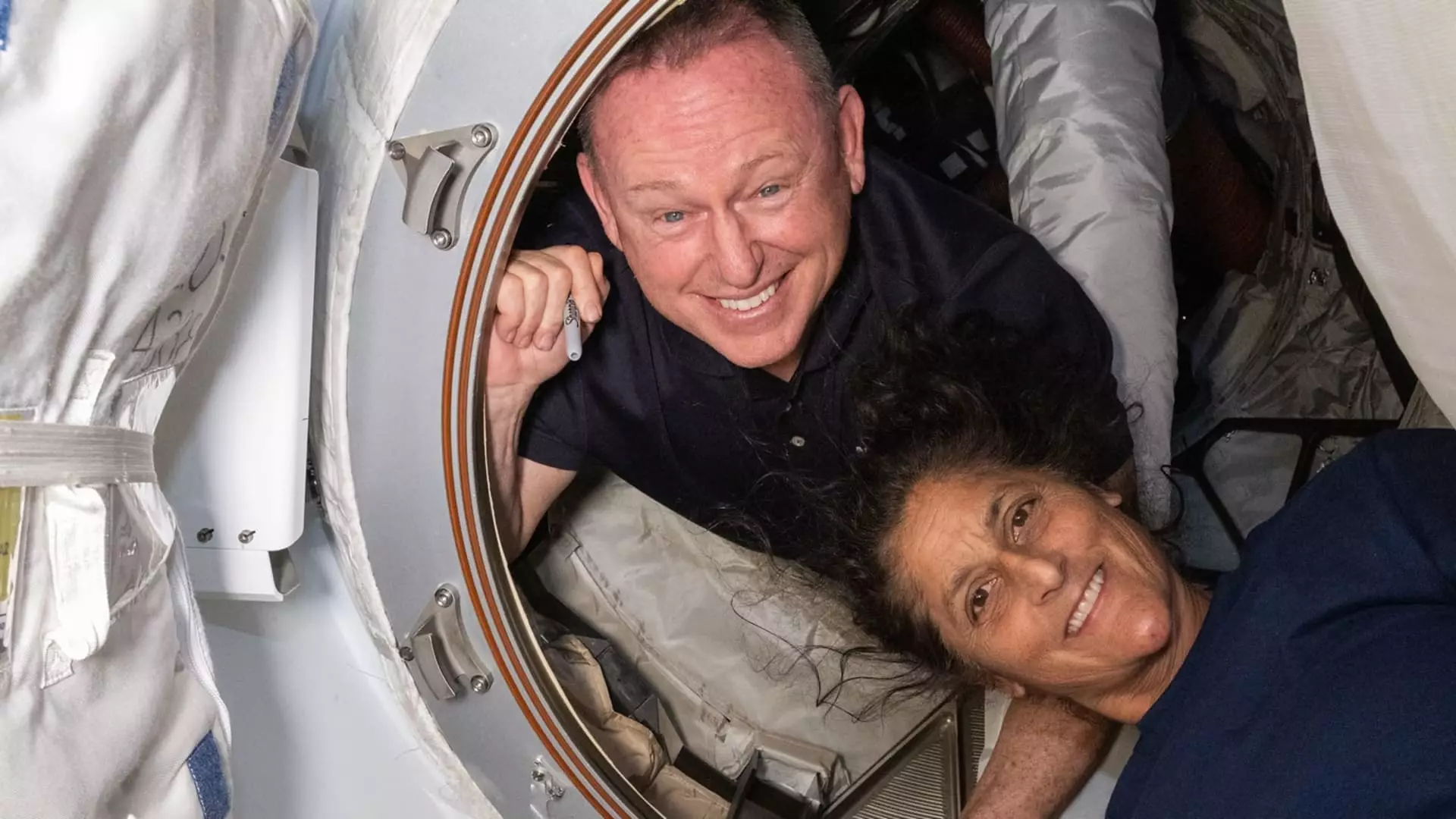The journey of NASA astronauts Butch Wilmore and Suni Williams has transformed into a saga of unforeseen challenges and political intrigue, as their nine-month stay at the International Space Station (ISS) unfolds. Originally intended to be a brief test flight lasting only nine days, their mission stretched into months due to a faulty Boeing Starliner capsule. A routine docking turned disastrous, with thrusters failing and reasons for their well-orchestrated return into question. This situation not only complicated the astronauts’ lives but raised substantive concerns about the management and reliability of commercial space endeavors.
This ordeal transcends mere technical failures and reveals a troubling labyrinth of bureaucratic misadventures. It speaks to the broader narrative of how political influences can cloud the clarity of thrilling scientific exploration. The decision-making process around their return illustrates just how easily a seemingly straightforward mission can become ensnared in the web of governmental pressures, particularly when high-profile figures like former President Trump interject with baseless claims. This is a clear reminder that the advancement of science is frequently derailed by the machinations of political power plays.
The Strain of Extended Isolation
Wilmore and Williams have exhibited extraordinary resolve as they navigated their unexpected extension aboard the ISS. During their remarkably long stay, they took part in vital scientific experiments and maintained the station’s day-to-day operations, embodying the spirit of dedication that NASA values. However, the psychological strain of such an isolation—away from family and friends for almost a year—cannot be underestimated. As Williams herself stated, they do not feel “abandoned,” but it is hard to ignore the emotional toll that extended isolation may have on an astronaut.
The discussion surrounding their prolonged presence on the ISS also reflects a harsh reality that must be faced in the realm of space exploration: psychological resilience is a critical, yet frequently overlooked, component of enduring prolonged missions. The triumphs of space exploration come with the burden of solitude, and in an era marked by rapid technological advancement, one must wonder if we are fully prepared to handle the inherent human factors that accompany such radical endeavors.
Commercial Space Race: A Boon or Bane?
NASA’s original aspirations hinged on fostering competition in the commercial space sector—a gamble designed to diversify and heighten the efficiency of U.S. missions to the ISS. Boeing’s tumultuous foray with the Starliner program, which stands in stark contrast to SpaceX’s success, has provoked crucial conversations about the reliability of private space companies as they carve out their place in this industry. The fact that Boeing has reportedly bled over $2 billion on this venture raises significant questions regarding the practice of outsourcing key national capabilities to private entities.
While the original intent was to boost innovation and create a vibrant marketplace for space travel, we must ponder whether this rash dash for competition is to the detriment of safety and efficacy. The failure of the Starliner capsule cannot simply serve as a footnote in a broader narrative of commercial success; it holds lessons and cautionary tales about the pitfalls of prioritizing speed over thoroughness in testing and development.
The Journey Ahead and Future Implications
As Wilmore and Williams prepare for their return aboard a SpaceX Dragon capsule, their experience underscores a dichotomy in the present landscape of space travel: the balancing act between ambition and accountability. Will this misadventure be an isolated incident, or does it signal deeper systemic challenges within a rapidly evolving space industry? The contrast between Boeing’s technological setbacks and SpaceX’s operational triumphs will indubitably shape future missions and funding amidst a still-revolving political landscape.
The recovery of these talented astronauts will not be just an exercise in engineering recovery but a pivotal moment that could redefine NASA’s course in its collaboration with private enterprises. This unfolding drama invites scrutiny and demands accountability. As we marvel at humanity’s reach for the stars, we must also acknowledge the intricate web of politics, interpersonal relations, and corporate responsibility that undergirds every ambitious leap into the cosmos.

